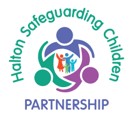Staying Safe Online
Using the internet can be fun and enjoyable but the internet can be dangerous.
It’s not always easy to know what’s safe online and what’s not. There are lots of fun and interesting things you can do on the internet; and it can be a great way to stay in touch with friends and family. But it’s important to understand how to stay safe online. Educating yourself, keeping up to date on security and being aware of privacy issues can help you keep clear of abuse or bullying.
Dangers of the Internet:
- Children and young people can be at risk of becoming groomed.
- A platform for bullying
- Phishing- the use of emails that try to trick people into clicking on malicious links or attachments.
- Scams
- Catfishing- when someone creates fake profiles on social media sites to trick people into thinking they are somebody else.
When online, it’s easy to pretend to be someone you’re not. What are the warning signs?
Here are some warning signs they could be an abuser:
- They share all your interests and give you lots of attention.
- They make you feel good about pictures on your profile.
- They talk about sex and send explicit pictures or videos.
- They ask you to send them explicit pictures. Remember, if you send one, they could threaten to share it with your friends or family if you don’t do what they want.
- They ask to talk to you in private using an app or ask for your phone number.
- They ask you to keep your chats secret.
- They tell you their webcam is broken. Remember, it’s easy to record and fake a webcam video.
- Keep safe by being careful and not giving our personal information. Personal information includes your email address, phone number and passwords.
- If you are meeting someone you have met online only do so with your parent’s or carer’s permission and even then, only when they can be present. Remember online friends are still strangers even if you have been talking to them for a long time.
- Be careful when accepting emails, messages or opening file/images or texts from people you don’t know. These can sometimes contain viruses or nasty messages.
- Sometimes people lie about who they are and the information on the internet may not be true. You can check information by looking at other websites, in books, or with someone who knows.
- Tell a parent, carer or a trusted adult if someone, or something makes you feel uncomfortable or worried, or if you or someone you know is being bullied.
Online Gaming & Livestreams
Criminals are increasingly targeting children and young people via online gaming sites, pretending to be someone who they are not. Online games like Fortnite and Roblox can let you play with your friends and strangers from around the world. But playing with people online can also be risky.
ThinkUKnow offers tips for online gaming and playing safely online.
If someone is forcing you to send an inappropriate image of yourself you should report them to the Police by calling 101.






